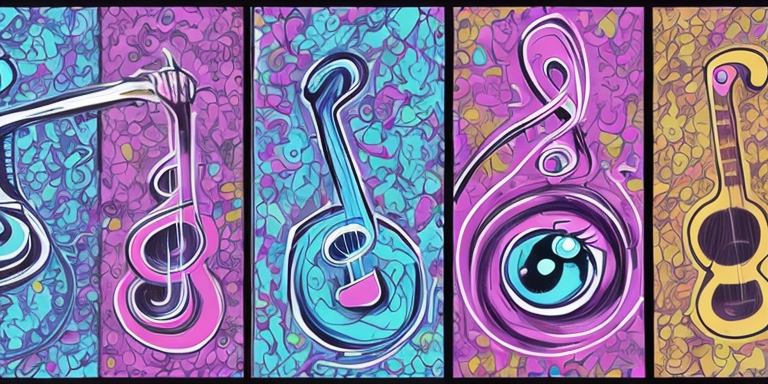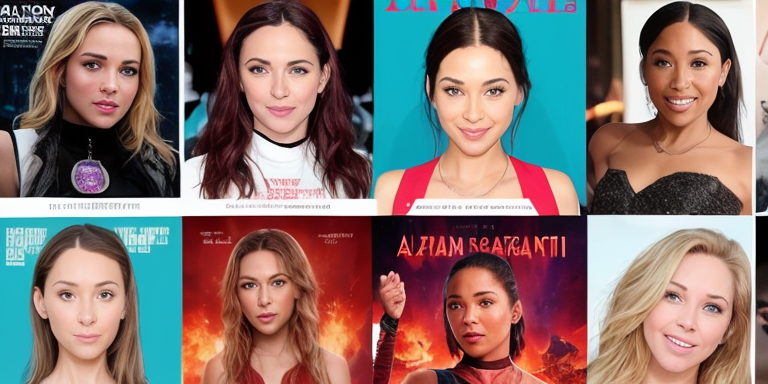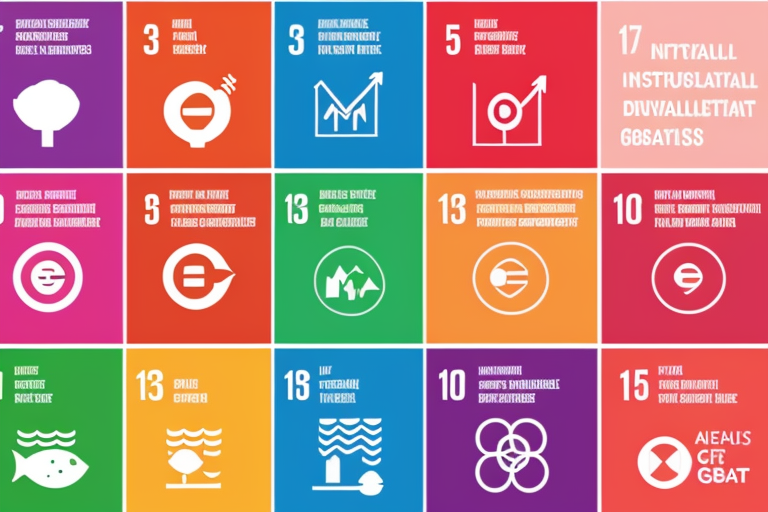The Rise of TikTok and Its Impact on the Music Industry
In recent years, TikTok has become one of the most popular social media platforms worldwide, with over 1 billion active users. The app’s unique algorithm allows users to create and share short-form videos, making it a hub for viral trends and challenges. However, TikTok’s impact extends beyond just entertainment. The platform has disrupted the music industry, providing a new way for artists to gain recognition and connect with their fans.
In this article, we will explore the various ways TikTok has influenced the music industry. We will discuss the power of TikTok challenges, the role of influencers, and how the platform has disrupted traditional distribution models. We will also analyze the challenges of measuring success on TikTok and its impact on the industry. By the end of this article, you will have a better understanding of the relationship between TikTok and the music industry and its potential future.
The Power of TikTok Challenges
TikTok challenges have become a cultural phenomenon, with users creating and participating in various challenges every day. These challenges often involve dancing or lip-syncing to a specific song, with users adding their own creative spin to make the video stand out. However, TikTok challenges are not just a fun way to pass the time; they have become a powerful marketing tool for music artists.
When a song becomes popular on TikTok, it can lead to a significant increase in streams and downloads. For example, Lil Nas X’s “Old Town Road” became a viral hit on TikTok, leading to its success on the charts. The song spent a record-breaking 19 weeks at number one on the Billboard Hot 100, thanks in part to its popularity on TikTok.
Music artists have also started creating their own challenges to promote their songs. For example, Megan Thee Stallion’s “Savage” challenge went viral on TikTok, leading to the song’s success on the charts. The challenge involved users performing a specific dance routine to the song, with Megan Thee Stallion herself participating in the trend.
TikTok challenges have become a powerful way for music artists to connect with their fans and promote their music. As the platform continues to grow, we can expect to see more challenges and viral trends in the future.
The Role of Influencers
Influencers have become a crucial part of TikTok’s success. These are users with a large following who create content that resonates with their audience. Influencers on TikTok often participate in challenges and trends, helping to spread the word about new songs and artists.
Music artists have also started collaborating with influencers to promote their music. For example, Doja Cat’s “Say So” became a viral hit on TikTok, thanks in part to the popular influencer Addison Rae. Addison created a dance routine to the song, which went viral on the platform, leading to its success on the charts.
Influence marketing has become a crucial part of the music industry, with artists and record labels partnering with influencers to promote their music. TikTok has made it easier for artists to connect with influencers and reach a wider audience, leading to more success on the charts.
Disrupting Traditional Distribution Models
TikTok has disrupted traditional distribution models by providing a platform for artists to gain recognition without the support of major record labels. In the past, record labels had a significant amount of power in the music industry, controlling the distribution and promotion of new artists.
However, TikTok has changed the game, allowing artists to gain recognition through viral trends and challenges. For example, the artist Powfu gained success on TikTok with his song “Death Bed,” leading to a record deal with Columbia Records. TikTok has provided a new way for artists to gain recognition and connect with their fans, without the need for a major record label.
As TikTok continues to grow, we can expect to see more disruption in the music industry. The platform has already proven to be a powerful tool for music marketing, and we can expect to see more artists using the platform to gain recognition in the future.
Measuring Success on TikTok
Measuring success on TikTok can be challenging, as the platform’s algorithm is constantly changing. A song that is popular one day may not be popular the next, making it difficult to predict long-term success.
However, TikTok has become a crucial part of measuring success in the music industry. The platform’s charts provide a new way for artists to measure their success and gain recognition. As TikTok continues to grow, we can expect to see more artists using the platform to measure their success and connect with their fans.
Conclusion
In conclusion, TikTok has become a powerful tool for the music industry, providing a new way for artists to gain recognition and connect with their fans. The platform’s challenges and trends have become a crucial marketing tool for music artists, leading to success on the charts. Influencers have also become a crucial part of TikTok’s success, helping to spread the word about new songs and artists.
TikTok has disrupted traditional distribution models, providing a platform for artists to gain recognition without the support of major record labels. As the platform continues to grow, we can expect to see more disruption in the music industry. Measuring success on TikTok can be challenging, but the platform has become a crucial part of measuring success in the music industry. TikTok has changed the game, and we can expect to see more artists using the platform to gain recognition and connect with their fans in the future.
The Power of TikTok Challenges
TikTok challenges have become a powerful tool for music artists to promote their songs and reach a wider audience. These challenges typically involve users creating videos that follow a specific set of instructions or dance moves, often set to a particular song. The success of these challenges can be attributed to the platform’s algorithm, which promotes videos with high engagement rates and encourages users to participate in trending challenges.
One example of a successful TikTok challenge is the “Savage” challenge, which was created by user Keara Wilson and set to the song “Savage” by Megan Thee Stallion. The challenge involved a specific dance routine that quickly went viral, with users across the platform creating their own versions of the dance. The challenge’s popularity led to the song’s rise on the charts, eventually reaching the top 10 on the Billboard Hot 100.
Another example is the “Renegade” challenge, which was created by user Jalaiah Harmon and set to the song “Lottery” by K Camp. The challenge involved a complex dance routine that gained popularity on TikTok before spreading to other social media platforms. The challenge’s success helped to propel the song to the top of the charts, making it one of the most successful TikTok challenges to date.
The success of these challenges can be attributed to the role of TikTok users as “judges” of the content on the platform. Users determine the success of challenges by engaging with them, creating their own versions, and sharing them with their followers. This creates a snowball effect, with popular challenges gaining more and more traction as they spread across the platform.
The power of TikTok challenges has not gone unnoticed by music industry professionals, who have begun to incorporate them into their marketing strategies. Record labels and artists are now actively seeking out TikTok influencers to promote their songs and create new challenges. This has led to the emergence of “influence marketing” in the music industry, with TikTok influencers playing a crucial role in the success of new releases.
However, the success of TikTok challenges does not necessarily translate to long-term success for music artists. While a challenge may help to boost a song’s popularity on the platform, it does not guarantee sustained success or mainstream recognition. Additionally, measuring success on TikTok can be challenging, as the platform’s algorithm is constantly changing and can be difficult to predict.
Despite these challenges, TikTok challenges have disrupted traditional distribution models in the music industry, creating a platform for artists to gain recognition without the support of major record labels. This has the potential to democratize the industry and give more artists the opportunity to succeed on their own terms.
In the next section, we will explore the role of influencers in the success of TikTok challenges and their impact on music marketing.
The Power of Influencers in TikTok Challenges
TikTok challenges have become a phenomenon, with millions of users participating in various dance and music challenges. While the challenges themselves are often created by users, they are also heavily influenced by music artists and their marketing teams. The success of a challenge can often be attributed to the involvement of influencers, who have a significant impact on the challenge’s reach and popularity.
Influencers are individuals who have a large following on social media and are considered experts in a particular field. In the case of TikTok challenges, influencers are often popular users who have a large following and are known for their dance or lip-syncing skills. These influencers are often approached by music artists and their marketing teams to participate in challenges and promote their music.
The involvement of influencers in TikTok challenges can make or break a challenge. If a popular influencer participates in a challenge, it can quickly gain traction and become viral. On the other hand, if no influencers participate, the challenge may not gain the same level of popularity. This is because influencers have a large following and can help promote the challenge to their audience.
Influence marketing is a concept that has become increasingly relevant in the music industry. It involves partnering with influencers to promote a product or service. In the case of TikTok challenges, music artists partner with influencers to promote their music. This is because influencers have a large following and are considered experts in the field of dance and music.
One example of an artist who gained recognition through TikTok challenges is Uvanni. Uvanni is a music artist who used TikTok to promote his music and gain recognition. He partnered with influencers to create challenges around his music, which helped him gain a following on the platform. This eventually led to him signing a record deal and gaining mainstream success.
The success of TikTok challenges can also be attributed to the audience on the platform, who act as judges. The audience on TikTok is primarily made up of younger users, who are often referred to as the “son” generation. These users have a significant impact on the success of challenges, as they are the ones who determine whether a challenge is popular or not.
In conclusion, the role of influencers in the success of TikTok challenges cannot be overstated. They have a significant impact on the reach and popularity of challenges, and are often the key to success for music artists. Influence marketing has become increasingly relevant in the music industry, and TikTok challenges are a prime example of how it can be used to promote music. As the platform continues to grow, it is likely that influencers will continue to play a significant role in the success of TikTok challenges.
Disrupting Traditional Distribution Models: How TikTok is Changing the Music Industry
TikTok has disrupted traditional distribution models in the music industry by providing a platform for artists to gain recognition without the support of major record labels. In the past, record labels were the gatekeepers of the industry, controlling who had access to recording studios, radio airplay, and marketing budgets. However, TikTok has changed this dynamic by allowing anyone with a smartphone and an internet connection to create and share music.
One example of an artist who gained recognition on TikTok without the support of a major label is Uvanni. Uvanni is a young musician who started posting his songs on TikTok in 2019. His music quickly gained traction on the platform, with users creating their own videos using his songs. As a result, Uvanni’s music went viral, and he gained a large following on the platform. This success on TikTok eventually led to a record deal with a major label.
TikTok’s disruption of traditional distribution models has also led to a change in how music is marketed. Instead of relying on traditional marketing channels like radio and TV, music labels are now turning to TikTok influencers to promote their artists. These influencers have large followings on the platform and can create viral challenges that feature the artist’s music.
However, the success of TikTok challenges and songs is not solely dependent on the number of views or likes they receive. TikTok users are the ultimate judges of what is popular on the platform, and they can quickly move on to the next challenge or song if they become bored or overexposed to a particular trend. This means that artists who gain popularity on TikTok need to constantly innovate and create new content to keep their audience engaged.
Despite these challenges, TikTok’s disruption of traditional distribution models has the potential to change the future of the music industry. As more artists gain recognition on the platform, major record labels may become less important, and independent artists may have more opportunities to succeed. Additionally, the success of TikTok challenges and songs could lead to a shift in how music is created, with artists focusing on creating short, catchy hooks that are easy to replicate in TikTok videos.
In conclusion, TikTok has disrupted traditional distribution models in the music industry by providing a platform for artists to gain recognition without the support of major record labels. This disruption has led to a change in how music is marketed and has the potential to change the future of the industry. However, the success of TikTok challenges and songs is not guaranteed, and artists need to constantly innovate to keep their audience engaged.
Measuring Success on TikTok
TikTok has become a powerful tool for music artists to gain recognition and success. The platform’s unique algorithm has allowed for songs to go viral and reach a massive audience. However, the question remains: does success on TikTok translate to long-term success for music artists?
One example of a successful TikTok challenge is the “Renegade” dance. The challenge was created by a 14-year-old dancer named Jalaiah Harmon, who choreographed the dance to the song “Lottery (Renegade)” by K Camp. The challenge went viral on TikTok, with millions of users creating their own videos of the dance. The song eventually climbed the charts and became a hit, with K Camp even releasing a remix featuring Tyga.
While the success of “Renegade” is impressive, it’s important to note that not all TikTok challenges lead to long-term success for music artists. Some songs may go viral on the platform but fail to gain traction outside of TikTok. Additionally, the success of a challenge may not necessarily translate to success for the artist as a whole.
One challenge that did not lead to long-term success for the artist is “Say So” by Doja Cat. The song went viral on TikTok, with users creating videos of the “Say So” dance. The song eventually reached number one on the Billboard Hot 100 chart, but Doja Cat has yet to replicate that level of success with her other songs.
Measuring success on TikTok can be challenging. The platform’s algorithm is constantly changing, making it difficult to predict which songs will go viral. Additionally, the success of a challenge may not necessarily translate to success for the artist as a whole, as seen with “Say So.”
Despite these challenges, TikTok remains a powerful tool for music artists to gain recognition and success. The platform’s unique algorithm and user base have created a new way for artists to reach a massive audience. As the music industry continues to evolve, it will be interesting to see how TikTok continues to disrupt traditional distribution models and shape the future of the industry.









